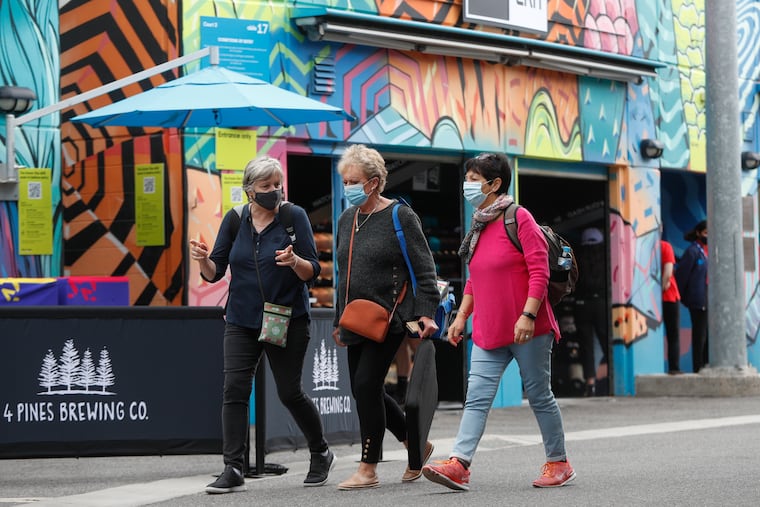The spread of the COVID-19 Delta variant prompts new restrictions in countries worldwide
The new curbs on travel and daily life stretched from Australia and Bangladesh to South Africa and Germany.

The rapid spread of the Delta coronavirus variant has forced a growing number of countries to reimpose lockdowns and other public health restrictions, raising fears that the more-contagious variant is hampering global efforts to contain the pandemic.
The new curbs on travel and daily life stretched from Australia and Bangladesh to South Africa and Germany, where authorities over the weekend set new limits on travelers from "virus-variant zones" such as Portugal and Russia.
South Africa on Sunday extended a nightly curfew and introduced a ban on gatherings, alcohol sales, indoor dining and some domestic travel for 14 days to halt a worrying surge in cases driven by the Delta variant, President Cyril Ramaphosa said.
In Bangladesh, the government pointed to a “dangerous and alarming” rise in Delta-related infections and halted all public transportation starting Monday, prompting thousands of migrant workers to flee the capital, Dhaka, before the restrictions took hold.
Australia is on the verge of a national coronavirus outbreak just as most other developed economies are emerging from restrictions. With the Delta variant seeding new clusters across the country, officials said it was a “critical time” for Australia.
Amid concerns over the persistence of the pandemic and the proliferation of bogus vaccination certificates, Russia has imposed stringent rules for inoculation: Moscow has ordered 60% of workers who interact with the public to get vaccinated or get different jobs. The capital on Sunday logged a record 144 COVID-19 deaths in 24 hours.
The United States is providing Honduras with 1.5 million doses of the Moderna vaccine, Secretary of State Antony Blinken tweeted Sunday. The nation of about 10 million has one of the lowest inoculation rates in Latin America, with fewer than 1% of the population fully vaccinated.
» READ MORE: Hospitalized for over 200 days with COVID-19, Philly man comes home to cheers in his Fox Chase neighborhood
Thai authorities declared a monthlong limited lockdown in the capital, Bangkok, and neighboring provinces amid a spike in new cases attributed to the Delta variant. And Malaysia extended a nationwide shutdown that was scheduled to be relaxed Monday.
In Taiwan, which reported its first Delta case Saturday, the local Centers for Disease Control announced new restrictions for people arriving from seven “high-risk countries”: Bangladesh, Britain, Brazil, India, Indonesia, Israel and Peru.
Hong Kong also said Monday that it was banning all passenger flights from Britain, beginning later this week, because of the growing number of new coronavirus cases and the “widespread Delta variant virus strain there,” according to a government statement.
Ahead of England’s plan to ease remaining coronavirus restrictions on July 19, the Delta variant has continued to spread and is now responsible for more than 90% of new infections in Britain. Concerns about the variant have prompted British authorities to shorten the time between vaccine doses for those older than 40.
» READ MORE: Pa. seniors long have faced higher risks of dying in falls. The pandemic may have made it worse.
Health experts have warned that the variant — which was first identified in India — is on track to become the most dominant version of the coronavirus worldwide. The World Health Organization said last week that it has been detected in at least 92 countries.
Israel has one of the world’s highest vaccination rates but has also seen Delta cases jump in recent weeks, causing authorities to reinstate an indoor mask mandate that was dropped just two weeks ago.
However, Israeli officials on Sunday night ruled against reviving more-stringent coronavirus measures. Instead, the government is relying on the country’s high vaccination rate to protect residents from virus-related hospitalizations and deaths.